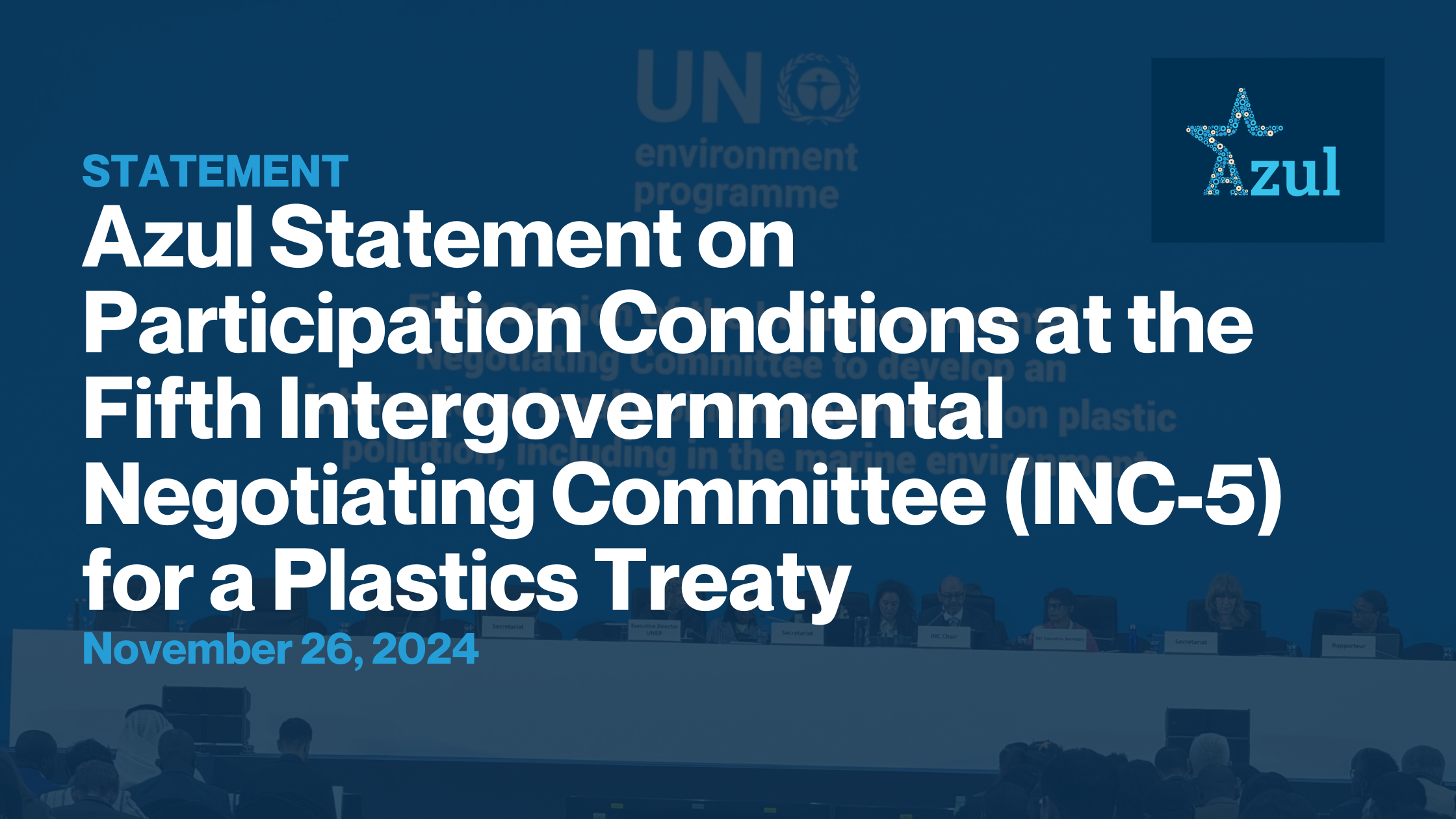Azul Statement on Participation Conditions at the Fifth Intergovernmental Negotiating Committee (INC-5) for a Plastics Treaty

For Immediate Release
Tuesday, November 26, 2024
Contact (Español/English):
media@azul.org
Azul Statement on Participation Conditions at the Fifth Intergovernmental Negotiating Committee (INC-5) for a Plastics Treaty
Busan, Republic of Korea (November 26, 2024) – Azul is disappointed at the restrictions placed on Observers due to room capacity issues during the Fifth Intergovernmental Negotiating Committee (INC-5) for a Plastics Treaty. Observer participation is crucial to ensuring that the needs, knowledge, and expertise of civil society are present during these negotiations, as stressed in UNEA resolution 5/14, which called for the “widest and most effective participation possible.”
As noted repeatedly in the UNEP report, Neglected: Environmental Justice Impacts of Marine Litter and Plastic Pollution, meaningful engagement in decision-making is an essential principle for environmental justice:
“Procedural justice investigates the inequity of bargaining powers of communities with different levels of economic development and is associated with issues of the right of all peoples to participate in the decision-making process.” (pg 13)
“Broader systemic issues of policies of inclusion or exclusion of certain interests in negotiation, such as ensuring rights to information and public participation in decision-making, can create spaces for the proliferation of environmental injustices at all geographic scales.” (pg 13)
“Some guiding principles for achieving environmental justice have already been identified, many of which are alluded to throughout the report. These include rights to information, appropriate training for potentially exposed workers, public participation in decision-making, opportunities for input and partnership for all stakeholders, and ensuring the involvement and guidance of vulnerable communities in the environmental decision-making process.” (pg 14)¹
Marce Gutiérrez-Graudiņš, Founder and Executive Director of Azul and co-author of the UNEP report, Neglected, released the following statement:
“The right to information and public participation is crucial to achieving environmental justice,” said Gutiérrez-Graudiņš. “It’s discouraging to see the logistical failures that are resulting in inequitable participation for all parties involved, especially considering these types of systemic issues are ripe for the propagation of environmental injustices at all levels.”
More than 500 observer organizations from across the globe, many of whom traveled thousands of kilometers to attend these pivotal negotiations, are effectively shut out of negotiation rooms. In addition to room capacity issues, observers and member states have experienced severe internet connection issues, which further hinder negotiations. Combined, these shortcomings create an inadequate environment to create and deliver the treaty the world needs.
It is imperative that these negotiations are carried out in an equitable and transparent manner and that the process provides adequate opportunities for observers to engage meaningfully. As the negotiations proceed, we call on the INC Secretariat to take action to ensure observer organizations can meaningfully participate in these negotiations.
¹ United Nations Environment Programme (2021). Neglected: Environmental Justice Impacts of Marine Litter and Plastic Pollution. Nairobi.
# # #
Azul is an ocean justice organization working with grassroots Latino communities to protect coasts and the ocean. Founded in 2011, Azul has developed –and executed– campaigns that achieved groundbreaking ocean conservation policy victories.